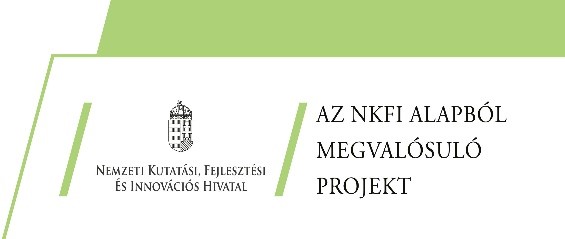A világgazdaságot számos pozitív és negatív trend és megatrend hatja át. A kedvezőbbnek tekinthető trendek közül kiemelkedik a digitalizáció és a zöld átállás, bár utóbbit egy kedvezőtlen természeti változás, a globális felmelegedés és az üvegházhatás idézte elő. A kedvezőtlen folyamatok közül kiemelkedik a COVID-19 világjárvány, az energiaválság, az inflációs nyomás vagy az orosz-ukrán háború gazdasági következményei. Számos vállalkozás nem találta meg a megfelelő eszközt a reagálásra, miközben a digitalizáció és a digitális megoldások mindenki számára elérhető alternatívát jelentettek. Jelen tanulmány éppen a digitalizáció és a digitális felkészültség állapotát járja körül a vállalkozások körében. Szakirodalmi részében arra keresi a választ, hogy a digitális eszközök miben segíthetnek egy gazdálkodó szervezet számára. A szakirodalmi áttekintést követően primer kutatási eredmények bemutatására vállalkozik, amellyel a gyakorlati oldalt kívánja megvilágítani a megkérdezettek gazdasági szereplők működésén keresztül.
XII. ÉVF. 2024. 1. SZÁM 9-14
DOI: 10.24387/CI.2024.1.2
Cikk megtekintése: http://controllerinfo.hu/wp-content/uploads/2024/08/ContrInf_beliv_2024-01_02.pdf
Köszönetnyilvánítás
A 2019-2.1.11-TÉT-2020-00167 számú projekt a Kulturális és Innovációs Minisztérium Nemzeti Kutatási Fejlesztési és Innovációs Alapból nyújtott támogatásával, a 2019-2.1.11-TÉT pályázati program finanszírozásában valósult meg.

IRODALMI FELDOLGOZÁS
BILAN, Y. – MISHCHUK, H. – SAMOLJUK, N. (2023):. Digital Skills of Civil Servants: Assessing Readiness for Successful Interaction in e-society. January 2023. Acta Polytechnica Hungarica 20(3). pp. 155-174. DOI: 10.12700/APH.20.3.2023.3.10
BHAGAT, P.R. – NAZ, F. – MAGDA, R.(2022): Role of Industry 4.0 Technologies in Enhancing Sustainable Firm Performance and Green Practices. Acta Polytechnica Hungarica, 19(8), pp. 229-248. Acta Polytechnica Hungarica, 20(3), pp. 155-174. DOI: 10.12700/APH.19.8.2022.8.13
BHARADWAJ, A. – EL SAWY, O. A. – PAVLOU, P. A. – VENKATRAMAN,N. (2013): Digital business strategy: toward a next generation of insights. MIS Quarterly, 37(2). pp. 471-482. http://www.jstor.org/stable/43825919. https://ssrn.com/abstract=2742300
BOLLWEG, L. – BAERSCH, S. – LACKES, R. – SIEPERMANN, M. – WEBER, P. (2021): The digitalization of local owner-operated retail outlets: how environmental and organizational factors drive the use of digital tools and applications. Business Information Systems. 1. pp. 329-341. https://doi.org/10.1080/08276331.2019.1616256
CALDERON-MONGE, E. – RIBEIRO-SORIANO, D. (2023): The role of digitalization in business and management: a systematic literature review. Review Managerial Science. 2023 Mar 28 pp. 1-43. DOI: 10.1007/s11846-023-00647-8.
CAPUTO, A. – PIZZI, S. – PELLEGRINI, M.M. – DABIĆ, M. (2021): Digitalization and business models: Where are we going? A science map of the field. Journal of Business Research. Elsevier. Vol. 123(C), pp. 489-501. https://doi.org/10.1016/j.jbusres.2020.09.053
ELLER, R. – ALFORD, P. – KALLMÜNZER, A. – PETERS, M. (2020): Antecedents, consequences, and challenges of small and medium-sized enterprise digitalization. Journal of Business Research. Vol. 112, pp. 119-127. https://doi.org/10.1016/j.jbusres.2020.03.004
FILALI, S. – FARAJ, N. (2022): Marketing of SMEs in the digital age: Challenges and issues. International Journal of Accounting, Finance, Auditing, Management and Economics. https://doi.org/10.5281/zenodo.7373605
GARAI-FODOR, M. (2023): Digitalisation trends based on consumer research. In: Szakál, A. (ed.) IEEE 17th International Symposium on Applied Computational Intelligence and Informatics SACI 2023 : Proceedings, IEEE Hungary Section, pp. 349-352. doi: 10.1109/SACI58269.2023.10158614.
GARAI-FODOR, M. – VASA, L. – JÄCKEL, K (2023/a): Characteristics of consumer segments based on perceptions of the impact of digitalisation. Decision Making: Applications in Management and Engineering 6 : 2 pp. 975-993. , 19 p. (2023) DOI: 10.31181/dmame622023940
HAGBERG, J. – SUNDSTROM, M. – EGELS-ZANDÉN, N. (2016): The digitalization of retailing: an exploratory framework. International Journal of Retail and Distribution Management. 44 (7)
HESS, T. – BENLIAN, A. – MATT, C. – WIESBÖCK, F. (2016): Options for formulating a digital transformation strategy. MIS Quarterly Executive. 15 (2), pp. 123-139. ISSN: 0959-0552
KRAFT, C. – LINDEQUE, J.P. – PETER, M.K.(2022): The digital transformation of Swiss small and medium-sized enterprises: insights from digital tool adoption. Journal of Strategy and Management. Vol. 15 No. 3. pp. 468-494. ISSN: 1755-425X
KRAUS, S. – DURST, S. – FERREIRA, J.J. – VEIGA, P. – KAILER, N. – WEINMANN, A. (2022): Digital transformation in business and management research: An overview of the current status quo. International Journal of Information Management. Volume 63. https://doi.org/10.1016/j.ijinfomgt.2021.102466
MIZSER, CS. – GARAI-FODOR, M. – CSISZÁRIK-KOCSIR, Á. (2022): Key competences of young entrepreneurs in the world of digitalisation based on the results of a Hungarian questionnaire research. In: Szakál, A. (ed.) IEEE 10th Jubilee International Conference on Computational Cybernetics and Cyber-Medical Systems ICCC 2022, IEEE Hungary Section, pp. 281-286. doi: 10.1109/ICCC202255925.2022.9922856
PASCUCCI, F. – SAVELLI, E. – GISTRI, G. (2023): How digital technologies reshape marketing: evidence from a qualitative investigation. Italian Journal of Marketing. 2023. pp. 27-58. https://doi.org/10.1007/s43039-023-00063-6
PEREIRA, C.S. – DURÃO, N. – MOREIRA, F. – VELOSO, B. (2022): The importance of digital transformation in international business. Sustainability 2022. 14. 834. https://doi.org/10.3390/su14020834
PERIFANIS, N.A. – KITSIOS, F. (2023): Investigating the influence of artificial intelligence on business value in the digital era of strategy: A literature review. Information 2023. 14. 85. DOI: 10.3390/info14020085
QUARATO, F. – PINI, M. – POSITANO, E. (2020): The impact of digitalization on the internationalization propensity of Italian family firms. Corporate Ownership & Control, 17(3). pp. 92-107. DOI: 10.22495/cocv17i3art7
RACHINGER, M. – RAUTER, R. – MÜLLER, C. – VORRABER, W. – SCHIRGI, E. (2019): Digitalization and its influence on business model innovation. Journal of Manufacturing Technology Management. Vol. 30. No. 8, pp. 1143-1160. ISSN: 1741-038X
RODRÍGUEZ-MORENO, J. – ORTIZ-COLÓN, A.M. – CORDÓN-POZO, E. – AGREDA-MONTORO, M. (2021): The influence of digital tools and social networks on the digital competence of university students during COVID-19 pandemic. International Journal of Environmental Research and Public Health 2021. 18. 2835. https://doi.org/10.3390/ijerph18062835
SAÁRY, R. – KÁRPÁTI-DARÓCZI, J. – TICK, A. (2022): Profit or less waste? Digitainability in SMEs – A comparison of Hungarian and Slovakian SMEs. Serbian Journal of Management, 17(1), pp. 33–49. DOI: 10.5937/sjm17-36437
SARAIVA, C. – MAMEDE, H.S. – SILVEIRA, M.C. – NUNES, M. (2021): Transforming physical enterprise into a remote organization: Transformation impact: digital tools, processes and people. 16th Iberian Conference on Information Systems and Technologies (CISTI), Chaves. Portugal. 2021. pp. 1-5. doi: 10.23919/CISTI52073.2021.9476463
SEWPERSADH, N.S. (2023): Disruptive business value models in the digital era. Journal of Innovation and Entrepreneurship 12. 2 https://doi.org/10.1186/s13731-022-00252-1
TAIMINEN, H. – KARJALUOTO, H. (2015): The usage of digital marketing channels in SMEs. Journal of Small Business and Enterprise Development. 22 (4). pp. 633-651. ISSN: 1462-6004
TRASCA, D.L. – ȘTEFAN, G.M. – SAHLIAN, D.N. – HOINARU, R. – ȘERBAN-OPRESCU, G.L. (2019): Digitalization and business activity. The Struggle to Catch Up in CEE Countries. Sustainability 2019. 11. 2204. https://doi.org/10.3390/su11082204
TICK, A. – SAÁRY, R. – KÁRPÁTI-DARÓCZI, J. (2022): Conscious or indifferent – Concerns on digitalization and sustainability among SMEs in Industry 4.0. Serbian Journal of Management, 17(1), pp. 145–160. DOI: 10.5937/sjm17-36412
TICK, A. – KÁRPÁTI-DARÓCZI, J. – SAÁRY R. (2023): Digitalizáció vagy fenntarthatóság – A vállalkozások szemüvegén keresztül. Informacios Tarsadalom, 23(1), pp. 40–60. DOI: 10.22503/inftars.XXIII.2023.1.3
VARGA, J. (2021): Defining the Economic Role and Benefits of Micro, Small and Medium-sized Enterprises in the 21st Century with a Systematic Review of the Literature. Acta Polytechnica Hungarica, 18(11), pp. 209-228. DOI: 10.12700/APH.18.11.2021.11.12

